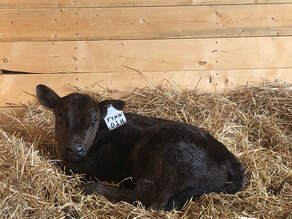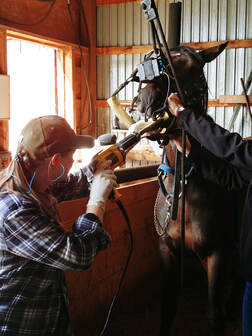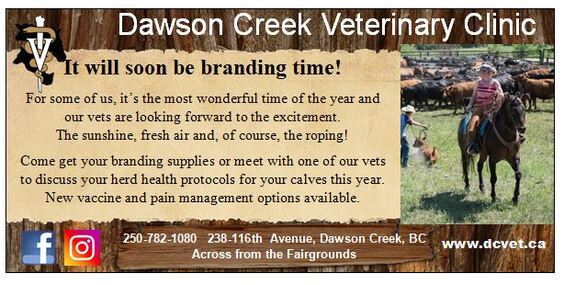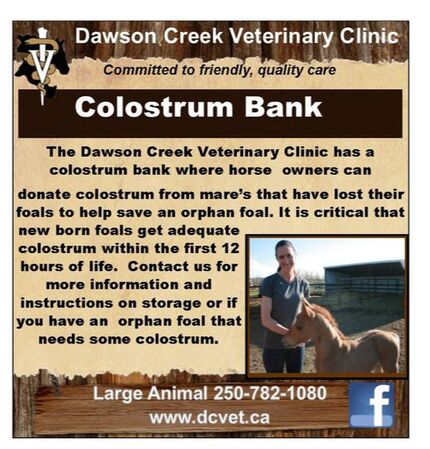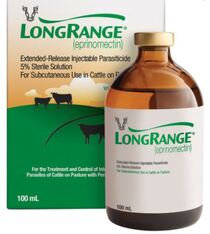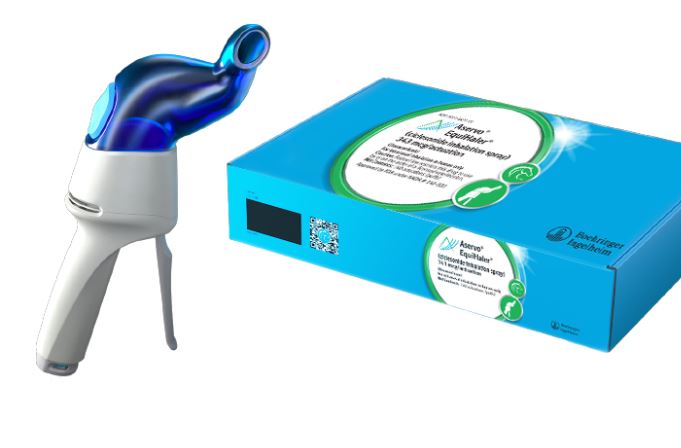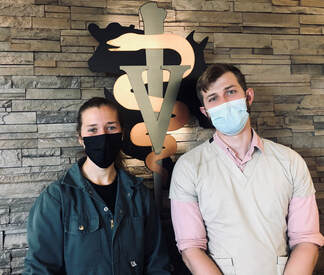May 2021
We have linked a lot of great articles in this edition, written by our current and former veterinarians. As always, if you have any questions, just give us a call ! 250-782-1080
Calf Scours ... prevention is the best medicine
|
Scours is a disease calves get that is usually caused by an infectious agent (bacteria, protozoa or virus) that attacks and damages the lining of the intestines. When the intestines are damaged, they can’t absorb nutrients or water properly and the calf gets diarrhea. The diarrhea causes the calf to become dehydrated and weak. Eventually it leads to death. Scours in calves is responsible for one third of all death losses during the first month of life. Prevention of scours is a very important part of cow-calf management. Most of the agents that cause scours in calves are spread through manure. If a calf’s immune system isn’t working properly, it will be more prone to developing scours and less likely to recover from it. To learn more about prevention and treatment Read the full article
|
Spring cattle vaccinations
Timing of vaccination is important to get a good immune response. Giving vaccines during stressful periods can reduce the ability of the animal’s immune system to respond the vaccine. This can result in reduced protection. Administering respiratory disease vaccines 2-4 weeks prior to weaning and again at weaning is preferred. Cattle that have poor nutrition, parasites or have other diseases are likely ..... Read the full article
Timing of vaccination is important to get a good immune response. Giving vaccines during stressful periods can reduce the ability of the animal’s immune system to respond the vaccine. This can result in reduced protection. Administering respiratory disease vaccines 2-4 weeks prior to weaning and again at weaning is preferred. Cattle that have poor nutrition, parasites or have other diseases are likely ..... Read the full article
|
Equine dental health
Dental disease can present due to many causes. Some symptoms of equine dental disease are abnormal eating behavior like head tilt, quidding (dropping balls of feed), slobbering and excess salivation. Sometimes you may notice discharge or foul odor from their mouth. Refusal to eat or selective eating, combined with chronic weight loss can be noted. Some horses with poor teeth can have long hay particles in their feces which may predispose them to conditions like colic. You may also notice problems with training like head shaking, resisting turns, resisting bridling, mouthing or chewing the bit. Facial or jaw swelling can also be an early indicator of root infections or abnormal dentition. There are preventative measures you can take to keep your horse from developing dental disease. First, feed your horse on the ground when possible. This is the normal grazing position of the animal and will help prevent abnormal wear. When possible, feeding should be ... Read the full article |
|
Ranchers and Riders beware, there are poisonous plants in the pasture!
Read the full article written by Dr. Zoe with photos detailing poisonous plants in our Peace Country pastures. Alsike, sweet clover, western water hemlock and more. Core equine vaccines Core vaccines are not related to travel or horse to horse contact. Tetanus is an organism found in the soil that most commonly enters through a wound, or surgical site. West Nile and EEE/WEE are both mosquito born diseased. Rabies is transmitted through saliva, and is most commonly carried by bats and small mammals. Therefor as you can imagine your equine partner doesn’t have to leave their residence to be at risk! Read the full article |
|
Veterinary chiropractic
Veterinary chiropractic is a therapeutic technique that focuses on restoring normal motion in the spinal column. This helps improve dysfunctions of the neuro-musculoskeletal system in order to decrease pain, restore motion to areas of restriction, improve function, and facilitate the nervous system. Animals that benefit from chiropractic treatment following veterinary assessment and treatment include performance horses (maintenance of good muscle function/injury prevention), senior patients with stiffness or arthritis, disc disease in dogs (mild forms), urinary incontinence and post operative surgical cases that have secondary muscle loss or compensation. Read the full article |
|
Send parasites packing!
We are happy to announce that LongRange is back in stock and available at our clinic! The Theraphase™ technology used to develop this formulation of eprinomectin allows a single treatment to last up to 100-150 days, long enough to break the parasite life cycle and effectively reduce parasite burdens on the pasture. LongRange® is effective in the control of most internal and external parasites of cattle: gastrointestinal roundworms, lungworms, grubs, mites. |
|
ASERVO EQUIHALER - a new option for treating heaves and severe equine asthma
Horses with severe equine asthma struggle to breathe, even at rest. ASERVO EQUIHALER is a unique breathing treatment for horses. It generates a slow-moving soft mist that is easy to inhale, delivering medication deep into the lung. The ASERVO EQUIHALER is designed specifically for use in horses with severe equine asthma. An ergonomic handle and dosing lever make it simple to administer. The anatomically designed nostril adaptor fits inside the nostril of the horse, making it easier for them to inhale the medicated mist. Please consult your veterinarian before using as it is not recommended for horses with known hypersensitivity to ciclesonide or glucocorticoids. |
Spring and Pre-breeding bovine vaccines
Vaccinating your heifers or cows with a modified live BVD vaccine at least 1 month prior to breeding provides the only protection to the unborn fetus against BVD which can help prevent the development of persistently infected animals in your herd. Persistently infected animals rarely show signs of disease but serve as carriers of the virus to the rest of the herd. A pre-breeding vaccination program increases immunity prior to the highest risk period. If you vaccinate with a modified live vaccine in the spring, it is not necessary to use Triangle (killed vaccine) in the fall.
**Calves born from cows that are vaccinated according to label with express vaccines qualify for Express Verified Program**
Calves/Yearlings at branding or before pasture turnout
** for best immune response to the vaccine we recommend vaccinating calves 6 weeks of ago or older**
Pneumonia Vaccines
** Intranasal vaccines provide a longer window of protection than injectable vaccines, the Mannheimia component of the vaccine is more effective when giving separate from the IBR vaccine. Intranasal & Injectable options available
**Calves MUST be > 10 days old before vaccinating with a modified live vaccine – otherwise consider administering intranasal vaccine to younger calves**
Clostridial Vaccines (blackleg etc.)
Deworming
**Consider fecal floats to identify if parasites are an issue in your herd**
Pain Management
** recommended at processing to help calves get back sucking faster and paired up.
Implants
**helps boost growth - pellets administered by subcutaneous implantation in the middle third of the ear.
Vaccinating your heifers or cows with a modified live BVD vaccine at least 1 month prior to breeding provides the only protection to the unborn fetus against BVD which can help prevent the development of persistently infected animals in your herd. Persistently infected animals rarely show signs of disease but serve as carriers of the virus to the rest of the herd. A pre-breeding vaccination program increases immunity prior to the highest risk period. If you vaccinate with a modified live vaccine in the spring, it is not necessary to use Triangle (killed vaccine) in the fall.
**Calves born from cows that are vaccinated according to label with express vaccines qualify for Express Verified Program**
Calves/Yearlings at branding or before pasture turnout
** for best immune response to the vaccine we recommend vaccinating calves 6 weeks of ago or older**
Pneumonia Vaccines
** Intranasal vaccines provide a longer window of protection than injectable vaccines, the Mannheimia component of the vaccine is more effective when giving separate from the IBR vaccine. Intranasal & Injectable options available
**Calves MUST be > 10 days old before vaccinating with a modified live vaccine – otherwise consider administering intranasal vaccine to younger calves**
Clostridial Vaccines (blackleg etc.)
- Fermnicon® 7 /Somnugen: Clostridial plus Histophilus somni (bacterial pneumonia)
- Ultrachoice 8
- Tasvax 8 : includes tetanus
Deworming
- Ivermectin pour-on - significantly contributes to a higher avg. weaning weight in some environments. Short duration of horn fly control .
- Long Range (eprinomectin) – long acting dewormer recommended for yearlings on pasture
- Safeguard (fenbendazole) – drench or crumble
**Consider fecal floats to identify if parasites are an issue in your herd**
Pain Management
** recommended at processing to help calves get back sucking faster and paired up.
Implants
**helps boost growth - pellets administered by subcutaneous implantation in the middle third of the ear.
DUE TO COVID RESTRICTIONS AND COMPLICATIONS SOME PHARMACEUTICAL COMPANIES ARE EXPERIENCING SUPPLY ISSUES
Please get your vaccine orders in to our clinic as soon as possible with as much advance notice as possible!
This helps us insure we have the product you need when you need it.
Please get your vaccine orders in to our clinic as soon as possible with as much advance notice as possible!
This helps us insure we have the product you need when you need it.
|
Welcome to our 2021 summer students!
Rayden Saunders - going into his fourth year at WCVM (Western College of Veterinary Medicine). He will be here May, June and July. Marianne Sytnyk - going into her fourth year at WCVM. She will be here May, June, July and August. Stephanie Parth – going into her fourth year at UCVM (University of Calgary Veterinary Medicine). She will be here June and July. Brock Chappell – going into his fourth year at UCVM. He will be here August and September. |

